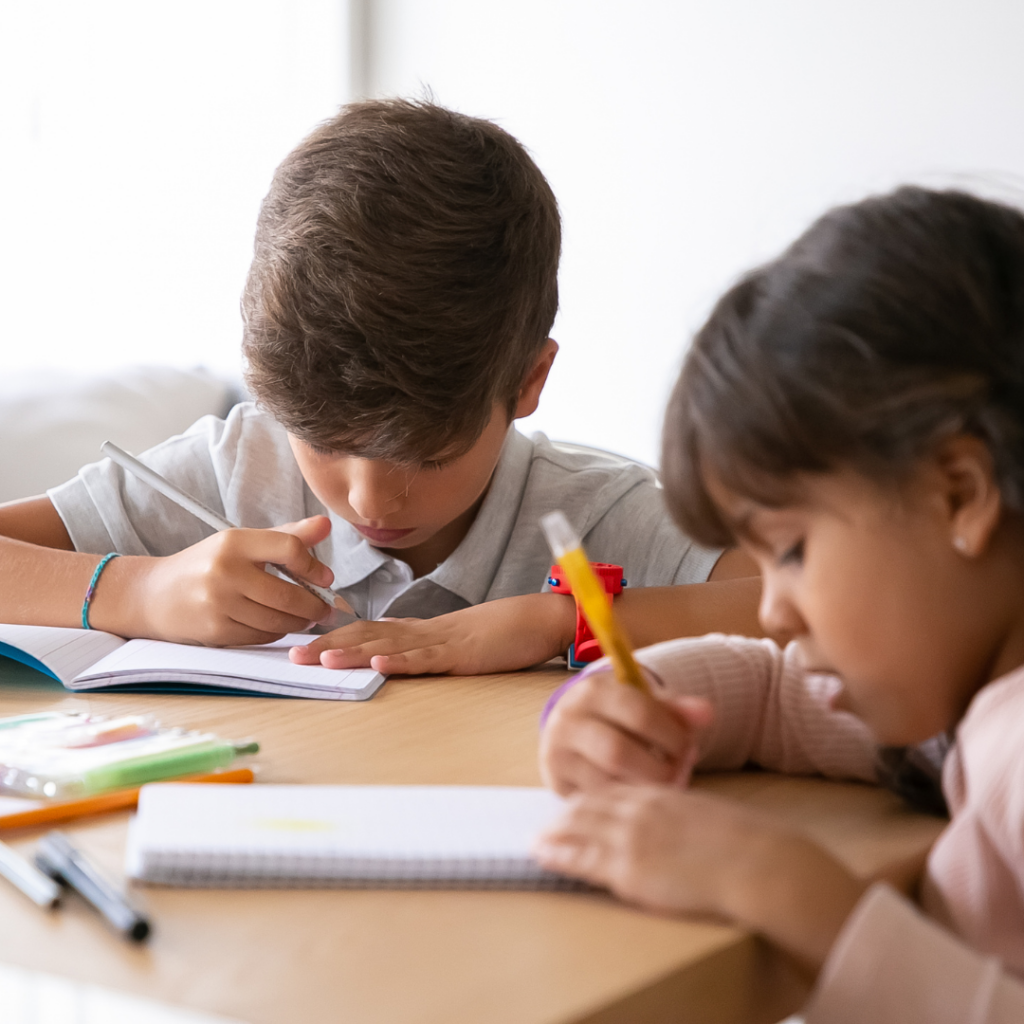Conscious Community Collective

Midwest Educational Therapists & Associates is now part of Central Ohio Conscious Community Collectives. We will be involved in monthly meetings, free workshops and volunteer work for local nonprofits. Check out Village Family Collective for our launch this week.
New Online Resources

Here are a few new links to some new online resources. Podcast: Students with Dyslexia can learn to read! Let’s identify early and intervene with Orton-Gillingham so they have the opportunity to achieve their goals. Podcast about self-talk and self-care CHADD Articles Principles for Parenting a Girl with ADHD Executive Skills Coaching What Parents Should Know By Peg Dawson, co-author Coaching Students with Executive Skills Deficits
Study Skills For Early Learning

It can be very motivating to complete tasks and achieve goals. This positive reinforcement can help the learner become more focused and committed to the task at hand. It is important to remember that different learners have different needs and strategies that work best for them. Some learners need more structure and support, while others prefer more independence and freedom to explore. The following tips can help facilitate task completion and goal achievement: When a learner knows what is expected of them and what the goal is, they are more likely to be successful. Establishing clear and concise expectations helps to ensure that there is a shared understanding between the learner and the teacher. This can help the learner stay focused and motivated. When the task seems less daunting, the learner is more likely to be successful. Instructing the learner on how to complete the task and providing feedback on their progress will help them stay on track. Acknowledge the learner’s accomplishments and provide encouragement along the way. This will help keep them motivated and focused. This can help the learner stay focused and motivated. When there is a sense of urgency, the learner is more likely to be successful. Giving the learner choices can help them feel more in control. This can help boost their motivation and increase their focus. Using a variety of strategies can help keep the learner interested and engaged. This can help increase their focus and motivation. The environment can play a big role in how well the learner performs. If the learner is more comfortable in a certain environment, then adjusting to that environment can help them be more successful. The strategies listed above can be helpful for learners of all ages. It is important to remember that what works for one learner may not work for another. So, it is important to be flexible and try different strategies until you find what works best for the individual learner. Study skills are important for elementary aged kids so they can succeed in school. There are many ways to help kids develop good study habits, including helping them create a study schedule, teaching them how to focus, and helping them learn how to take notes. Kids who develop good study skills early in life will be more likely to succeed in school and in life.
Motivating Kids In Winter

It can be tough to get kids motivated to participate in winter activities when there’s so much else that seems more fun, like staying in bed or watching TV. But with a little creativity and persistence, it’s possible to keep children active and entertained throughout the winter. One way to motivate kids is to get them involved in planning the activities. Ask them what kinds of things they would like to do, and let them help make a plan. This will help them feel more invested in the activities and more likely to participate. Another way to encourage kids to get active is to make the activities fun. If it’s always cold outside, try indoor activities like playing games, creating crafts, or reading books. Or, if the weather is nice, take advantage of the outdoors and go for a walk, sledding, or go camping in the backyard. Whatever activities you choose, make sure to emphasize the importance of being active and having fun. Midwest Educational Therapists in Columbus can help with motivation techniques. If your child is feeling unmotivated, Midwest Educational Therapists (META) can help. META can provide the tools and techniques your child needs to get back on track. One common motivator is having a sense of purpose. META can help your child identify their passions and create a plan to achieve them. Another motivator is progress. META can help your child learn techniques to track their progress and set milestones to help them stay on track. Winter can be a difficult time for kids when the sky is gray and there is little to do outside. However, there are many ways to motivate them to stay active and engaged during this time. By providing interesting and fun activities, parents can help their kids stay motivated and enjoy winter.
New Article About Julieann & Midwest Educational Therapists

Today we’d like to introduce you to Julieann Ash. Hi Julieann, we’re thrilled to have a chance to learn your story today. So, before we get into specifics, maybe you can briefly walk us through how you got to where you are today.“You think differently.” These were the powerful words from my brother’s speech therapist which changed my life when I was in fourth grade. At that point, I couldn’t read, write or remember math facts. I struggled to keep track of things and basically had lost hope that I would ever be successful in school or even worth much as a person. Once I learned how my brain worked, the feeling of joy and success was indescribable. I decided right then and there that I was going to learn how to help other people so no one ever had to struggle the way that I did. In 1996 I moved to Columbus, Ohio, and later became a Board-Certified Educational Therapist; at that time, I was the only Educational Therapist in the state. In 2000, I started a private practice to help individuals who learn differently. In 2011, I founded Midwest Educational Therapy & Associates (META). For the last 12 years, our team has supported struggling learners as they become resourceful, resilient, and self-reliant students. We focus on their strengths in order for them to build tools that allow them to become stronger learners and ultimately happier people. Read the full article -> https://voyageohio.com/interview/community-highlights-meet-julieann-ash-of-midwest-educational-therapists-associates/
Is Your Child Overloaded, Exhausted And Doesn’t Know Where To Start?

Check out the following tips to help with prioritization! If you’d like some more strategies or ideas for your child don’t hesitate to reach out to us at Midwest Educational Therapy and Associates Facebook, YouTube channel and at www.metaoh.
How Can We De-Stress The Holiday Season?

The holidays are in full swing. And while it may be the “happiest time of year” that doesn’t mean it doesn’t come without stress! Check out some of the following tips for how to de-stress your holidays! If you’d like some more strategies or ideas for your child don’t hesitate to reach out to us at Midwest Educational Therapy and Associates Facebook, YouTube channel and at www.metaoh.
Dealing With Holiday Stress In Children

Dealing With Holiday Stress In Children The holiday season can be a time of great joy and happiness, but it can also be a time of stress and anxiety for children. There are so many things to worry about during the holidays-whether you will get the gifts you want, if your family will be together, whether you will be able to see your friends, and on and on. The best way to deal with holiday stress in children is… Let them know that it is okay to feel stressed and that you are there to help them. If your child is anxious about not getting the gifts they want… If they are worried about being away from family… The most important thing is to be there for your child. Let them know that they can come to you with any questions or concerns they have and that you will help them to deal with whatever comes up. Midwest Educational Therapists & Associates has ideas and activities to help deal with holiday stress on our website. We have a stress relieving coloring book, videos, and links to other content you might find helpful. If you need assistance please reach out to Midwest Educational Therapists & Associates at 614-625-1771. Visit the website at https://metaoh.org
What Is Executive Function In Children?

What Is Executive Function In Children? Executive function (EF) is a critical set of skills that help children manage their thoughts, emotions and behavior. EF skills allow children to plan and execute tasks, stay on task, keep track of information, and inhibit impulsive behaviors. EF skills are important for success in school and in life. Poor EF skills can lead to problems such as difficulty completing homework assignments, trouble following instructions, and impulsively blurting out answers in class. EF skills can be improved through targeted interventions and practice. Parents can help their children develop EF skills by providing structure, clear expectations, and regular feedback. What are some specific executive function skills? Some specific executive function skills include: -Task initiation: The ability to begin and complete tasks. -Time management: The ability to plan and track time spent on tasks. -Goal setting: The ability to identify and achieve goals. -Organization: The ability to keep track of materials and tasks. -Flexibility: The ability to adapt to changing situations. -Self-control: The ability to inhibit impulsive behaviors. What can parents do to help their children develop executive function skills? There are many things that parents can do to help their children develop executive function skills. Some tips include: -Providing structure and clear expectations: Children with poor EF skills need structure and clear expectations in order to stay on task. Parents can help by creating routines for homework and chores, and providing regular feedback on tasks. -Helping children set goals: Children with poor EF skills often have difficulty staying motivated. Helping children set and achieve small goals can help them stay focused and motivated. -Encouraging organization: Children with poor EF skills often lose track of materials and tasks. Parents can help by providing organizational tools such as folders, checklists, and calendars. -Encouraging flexibility: Children with poor EF skills often find it difficult to adapt to changing situations. Parents can help by modeling flexibility and providing opportunities for children to experience a variety of situations. -Teaching self-control: Children with poor EF skills often have difficulty inhibiting impulsive behaviors. Parents can help by teaching children how to pause before responding and how to manage strong emotions. If you need help with executive function in your child or have questions, please fill out the form or give us a call.
Test Taking Skills

While many students dread them, standardized tests are a reality for students of all ages. Even toddlers are now being subjected to standardized tests, with some schools beginning to administer screening tests to students as young as two. So it’s never too early for kids to learn how to best prepare for and take standardized tests. Some kids are naturally good test takers. They can stay calm and focused, their mind remains clear and uncluttered, and they can quickly and easily get down the answers they need. But for other kids, test taking can be a real challenge. Their minds may wander, they may get nervous and jittery, and they may have difficulty concentrating and focusing. But with a little bit of practice, all kids can improve their test taking skills. Here are a few tips: If you feel like you’re losing focus or are getting anxious, take a break. A few minutes of relaxation can help clear your mind and refresh you so you can continue. These are just a few basic tips. To get the most out of your studying and practice, it’s a good idea to find a tutor or test prep course that can help you specifically with the type of standardized test you will be taking. Helping kids develop best test taking skills can set them up for success in school and beyond. Some general tips to help students succeed in test taking environments include: being well-prepared, taking practice tests, knowing the format of the test, reading the questions carefully, and answering the questions to the best of their ability. A variety of other techniques and strategies can be helpful for different students, so parents and educators should work with kids to determine what works best for them.


